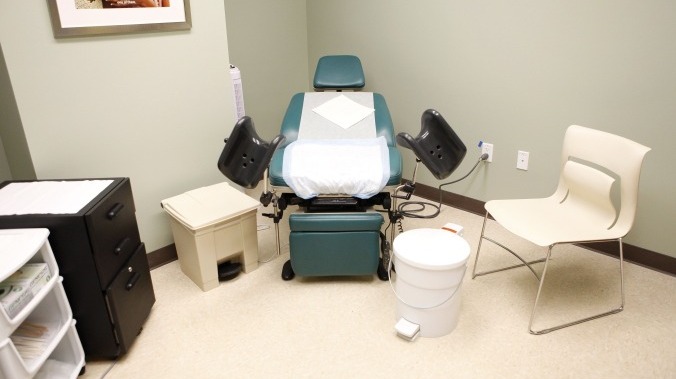It’s Been 2 Years Since Dobbs and Abortion Funds Say ‘Rage Donations’ Are Gone
"Anger donations have diminished and decreased at a time when the demand and cost for services has only increased,” the director of the abortion travel fund Brigid Alliance told Jezebel.
Photo: Shutterstock In Depth
In August 2022, a Louisiana woman named Nancy Davis learned her fetus wasn’t viable due to a rare congenital disorder known as acrania in which part or all of the skull is missing. But, because the state’s criminal abortion ban threatens doctors with prison time, she couldn’t find anyone in her home state to provide an emergency abortion since the fetus still had a heartbeat. Davis, a mother of two young children, and her partner had to make travel arrangements to get later abortion care elsewhere. That’s where the Brigid Alliance stepped in.
“They were my light in the dark,” Davis told Jezebel. “When you’re in a tragic situation like that, the last thing on your mind is booking tickets, research, finding a place to stay…” Since 2018, Brigid has helped people who need to travel for abortion care, with a focus on people who need abortion later in pregnancy. But Brigid doesn’t just send a check, they also organize all their travel, and lodging, and provide meal stipends and child care as needed. Brigid arranged for Davis to travel to New York for her abortion in September 2022. “Nothing came out-of-pocket,” she said. “We were completely taken care of.”
May marks Brigid’s sixth anniversary, as well as the second anniversary as the night we learned the Supreme Court was planning to overturn Roe v. Wade. The transformative shifts in the legal landscape around abortion access between 2018 and now have inevitably transformed Brigid’s work, and the ever-expanding needs of their clients, too. According to data Brigid shared with Jezebel, they’ve gone from supporting an average of 40 abortion-seeking clients per month in 2019 to now serving 150 per month. More recently, costs to support their clients have spiked: From 2021 to 2023, travel-related costs increased 16% from $836 to $993 per client, and in that same period, average lodging costs increased 29% from $242 to $345. It doesn’t help that the average distance clients need to travel has also increased by 30% between 2022 and 2023, from 1,000 miles to 1,300 due to the spread of abortion bans. As another reference point, from 2018 to 2019, Brigid served 523 total clients traveling an average of 1,244 miles, at an average cost of $732.47.
Recent events in Florida, where a six-week abortion ban just took effect and decimated abortion access across the South, reflect how dire the situation is in parts of the country: Now, the closest state where Floridians can access abortion is North Carolina—about 650 miles away—and only up to 12 weeks.
View this post on Instagram
According to Serra Sippel, interim executive director of Brigid, other cost-increasing factors include inflation and the fact that abortion is available in far fewer states now. Consequently, the procedure is in much higher demand in the states where it remains available. Two years after the end of Roe, everything is only getting more expensive. On Friday, Jezebel reported that across the board, abortion funds are spending substantially more money post-Dobbs. In 2023, Texas’ Lilith Fund spent $1 million, the Baltimore Abortion Fund also spent $1 million, the Abortion Fund of Ohio spent about $1.5 million, New York Abortion Access Fund spent $1.7 million, and the DC Abortion Fund spent $2 million.
-

-

-

-

-

-

-

-

-

-

-

-

-

-

-

-

-

-

-

-

-

-

-

-

-

-

-

-

-

-

-

-

-

-

-

-

-

-

-

-








































